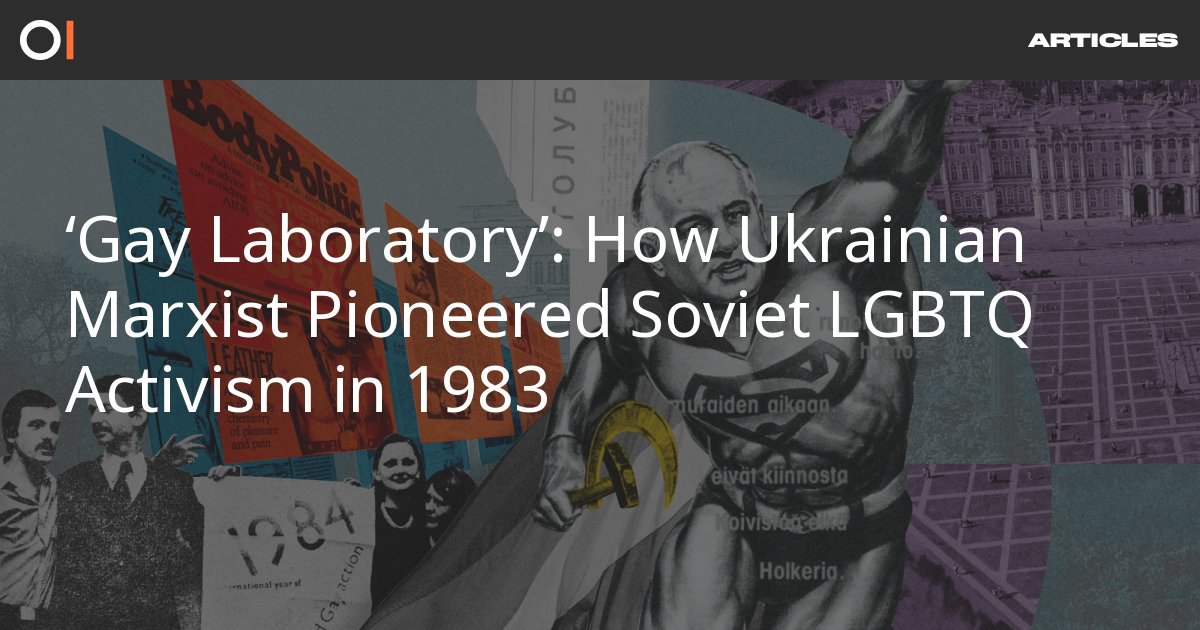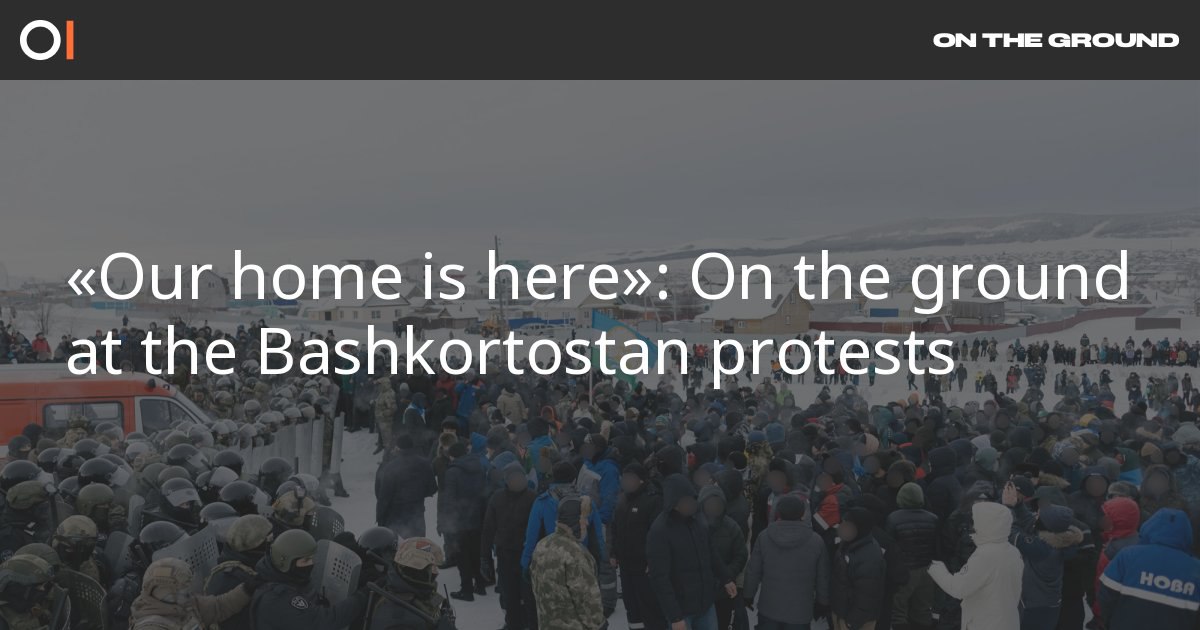More than 50 new «extremist organisations», the death of Alexey Navalny, a prisoner exchange and a case of protests in Baymak: OVD-Info sums up the first seven months of 2024.
All data as of 08.08.2024
A Prisoner Exchange with Western Countries
At the end of July and beginning of August, Russia, Belarus and three western countries (the U.S., Germany and Slovenia) carried out a large exchange of prisoners. Among those freed on the Russian side were political prisoners, activists, human rights defenders, politicians and journalists charged and sentenced under different articles (treason, espionage, anti-war statements etc.). Learn more about those people in our Twitter thread.
According to an initial agreement, Alexey Navalny was supposed to be also released from prison as part of the exchange. His colleague Leonid Volkov posted that in his Telegram channel. «A telling picture: Putin releases great, lively people who are greeted and welcomed by their families and friends. In return he gets a killer and a bunch of failed spies who are doomed to oblivion», he commented on the exchange.
Persecutions due to Anti-War Stance


OVD-Info is aware of more than 1,000 people who were criminally charged for their protest against the war with Ukraine. More than 500 of them were or are still being prosecuted under articles adopted after the start of the full-scale invasion as tools of military censorship (such as articles on spreading «fake» news and discrediting the Russian army). Authorities bring charges under these articles not only against activists and journalists, but also against IT-professionals, seniors, healthcare workers, military personnel and people of other professions.
Individuals with anti-war positions are prosecuted under other articles as well. The grounds for prosecution may range from public calls to avoid mobilisation to videos containing discussions about the war, participation in street surveys, voluntary work and desertion. Defendants in cases of more radical acts (e.g. setting military recruitment offices on fire) fall under the articles on terrorism even when the actual damage is often negligible.
We regularly update the infographics on people facing persecution for their anti-war position. Our Wartime Prisoners section contains information about defendants charged with arson, diversion, providing military help to Ukraine and refusing to fight in the war.
«Foreign Agents» and «Undesirable» Organisations
Lawmaking
In the first half of 2024, lawmakers paid special attention to the sources of income and property of those who disagree with the government’s actions. In February Vladimir Putin signed into law a bill on the seizure of property and loss of honorary titles belonging to individuals charged under the repressive articles.
After 1.5 months, another piece of legislation came into force that forbade advertising on Internet sources belonging to «foreign agents». This resulted in a loss of income and the closing down of several journalistic projects. In particular, Elizaveta Osetinskaya, Ekaterina Gordeeva, Andrey Pivovarov and Yury Dud spoke about such risk to their work. The latter called upon companies based outside of Russia to support independent journalists. In the middle of June, the State Duma introduced a bill prohibiting advertising on «extremist» and «undesired» online sources: in case the bill is adopted, it will restrict the ability to place ads on Meta’s platforms (Facebook and Instagram).
Besides, Duma members continue to fight against the participation of «foreign agents» in political and public life. In early May, a bill was introduced to the Duma that would forbid «foreign agents» to participate in the elections at all levels (from federal to local) as candidates, election watchers, authorised representatives, and candidates’ authorised agents. By the end of the month, the president signed the bill into law. In mid-June, the government of St. Petersburg was able to use the new law: for example, a local politician Anna Karulicheva was included in the Ministry of Justice’s register just three hours before the meeting of the committee which was to make a decision on her registration as a candidate in the municipal elections.
The month of May also saw the introduction to the Duma of a bill that widens the definition of an «undesirable organisation»: after the bill is adopted, the Prosecutor General’s Office will be able to also declare «undesirable» those organisations that have a governmental participation (e.g. state educational programs of other countries). In June, another bill followed: a bill on the prohibition of «foreign agents» to participate in the activities of federal and regional public chambers and engage in other activities having to do with public control over government authorities.
«Foreign Agents»
93 organisations and persons have been recognised as «foreign agents» since the beginning of 2024
The Ministry of Justice continues to expand the register of «foreign agents». Since the beginning of the year, the following persons and organisations have been added: Ekaterina Duntsova, who was planning to participate in the presidential election, writer Boris Akunin, the movement of the wives of mobilised persons »The Road Home», the Russian Socialist Movement, human rights defenders Oleg Orlov and Ivan Astashin, the Holod news outlet and the »VCHK-OGPU» channel.
As a result of his inclusion in the register of «foreign agents», businessman Oleg Tinkov was forced to close his leukaemia foundation. Also, due to the risk of being recognised as «foreign agents», several dozen non-profits terminated their cooperation with the «Help Needed» project, which helped them collect donations.
Currently, OVD-Info is aware of at least 20 people who have been criminally charged for violation of the «foreign agent» law. A criminal case under the second part of the relevant article may be opened if the person has been previously fined twice for non-compliance with their responsibilities as a «foreign agent». In 2023, the number of court decisions under the corresponding administrative article has risen sharply. In the summer of 2024, it was reported that the article is now used to prosecute people who are not included in the «foreign agents» register but who did not report their «foreign agent» status to the authorities themselves. After two violations of this article, the person may face criminal prosecution under Part 1 of Article 330 of the Criminal Code.
In early 2024, OVD-Info published a report titled «Cutting off the Oxygen» on the risks faced by «foreign agents» and organisations and people working with them.
«Undesirable Organisations»
Since the beginning of 2024, 56 organisations have been recognised as «undesirable»
In the first half of 2024, the number of police reports drawn under the administrative article on participation in the activities of an «undesirable» organisation (Article 20.33 of the Code of Administrative Offences) has risen. A repeated violation of this norm within one year since the decision on the administrative case came into effect may become the basis for a criminal prosecution under the relevant article. Administrative cases are opened against reporters of «undesirable» media, against people who give them interviews, and even against those who used to work for the «undesirable» organisations long before that term made its way into law.
Grigory Melkonyants, co-chairman of the Movement for Defence of Voters’ Rights Golos (Voice) who is charged with organising the activities of an «undesirable» organisation, remains in pre-trial detention since last autumn. Law enforcement officers consider the movement to be a structural subdivision of the «undesirable» organisation for election observation «ENEMO». Those who work with Golos also have police reports drawn against them under Article 20.33 of the Code of Administrative Offences. The members and followers of religious organisations declared «undesirable» (in particular, AllatRa, Falun Dafa, and New Generation) also face criminal prosecution.
«Extremists»

In 2024, the number of entities declared «extremist» in Russia increased. In the first six months of the year, such decisions were made, in particular, with regard to the Omsk Civic Association, supporters of Sergei Furgal, the family of Alexander Nevzorov and his wife Lidia, as well as the defunct Anti-Russian Separatist Movement and 55 organisations that were deemed to be its «structural subdivisions». Among the latter were the Free Russia Foundation, Free Buryatia, Free Yakutia and the German Association for Eastern European Studies.
Declaration of an organisation as «extremist» means a ban on the display of its symbols (after the death of Alexei Navalny, it turned out that courts may consider even his photo or mention of his surname as such) or the distribution of materials related to it, as well as the threat of criminal prosecution for those who law enforcement agencies may consider «supporters» of such an organisation.
In addition, in July, Duma members came up with a new initiative: they proposed to include in the Rosfinmonitoring’s list of terrorists and extremists people who are charged with crimes «motivated by hatred». Such a clause can be found, for example, in articles on vandalism or spreading «fakes» about the Russian army.
«The International LGBT Movement»
At the beginning of the year, the decision of the Supreme Court to ban the «international LGBT movement» as an extremist organisation entered into force. After the full text of the decision was published online, it became clear that the law enforcement considers the year 1984 to be the date when this «movement» began its activities in Russia — the same year when the «Gay Laboratory» dissident project was founded.

After the ban on the «LGBT movement», Russian courts began to massively fine and arrest people for publications depicting the rainbow. In Orenburg, three employees of the gay club Pose became defendants in a criminal case for organising the activities of an extremist organisation for spreading «propaganda of non-traditional relationships».
Activists are not very often the target of pressure under the administrative article on «LGBT propaganda»: most of the fines are imposed on owners of TV channels, bookstores, streaming services and other digital platforms. The reasons are either demonstration of non-heterosexual relations or situations where law enforcement officers managed to deduct that they took place.
Alexei Navalny’s Death and the Persecution of His Supporters

On 16 February, Alexei Navalny was killed in the penal colony of the Kharp settlement (Yamalo-Nenets Autonomous District). In early August, the politician’s associates said that Navalny was to be released as part of a major prisoner exchange between Russia, Belarus and Western countries. After that, people across Russia were detained for participating in mourning events, and the politician’s family could not get his body released for more than a week. In early March, Alexei Navalny was buried at Borisovsky cemetery in Moscow.
Some of the politician’s associates, lawyers and supporters are in prison or have been forced to emigrate. A former coordinator of Navalny’s headquarters in Tomsk, Ksenia Fadeyeva, was sentenced to nine years in prison this spring, while programmer Alexei Malyarevsky from the Moscow region, charged with participating in «underground headquarters», was sentenced to seven years in prison.

At least five journalists are in pre-trial detention on suspicion of participation in Navalny’s «extremist» structures. In March, SOTA.vision reporter Antonina Favorskaya (Moscow) and RusNews journalist Olga Komleva (Ufa) were taken into custody. Konstantin Gabov (Moscow), who cooperated with Associated Press and Deutsche Welle, and journalist Sergei Karelin (Murmansk) were later reported to have been detained as well. In mid-June, Favorskaya’s colleague Artem Krieger was arrested in Moscow after a house search.
Freedom of Speech
Calls for Terrorism, Extremism and Anti-State Activities
In 2024, law enforcement agencies continued to initiate criminal proceedings for statements that are seen as calls for terrorist, extremist or anti-state activities, or justification of the former. Such cases can be initiated for journalistic materials, publications on the Internet, private conversations and even performances. For example, Yevgeniya Berkovich and Svetlana Petriychuk, the director and scriptwriter of the play «Finist Yasny Sokol» — about women recruited by ISIS — were sentenced to long terms in early July for their theatrical piece.
Cases of Desecration of Symbols and Offending Feelings
What pretexts have law enforcement officers found so far in 2024 for bringing cases under the articles on offending the feelings of believers and rehabilitation of Nazism?
At the end of February, a court in Grozny sentenced Nikita Zhuravel from Volgograd to three and a half years in a penal colony for a video published in Telegram channels in which he was burning the Koran. The young man was found guilty under the article on insulting the feelings of believers. This article, as well as the article on rehabilitation of Nazism, is regularly used by law enforcement officers to prosecute people who have committed minor hooliganism, including as part of demonstrating their struggle for public morality. Among those prosecuted under these articles are the authors of a BDSM photoshoot in a St. Petersburg cemetery, a schoolboy who shouted «Heil Hitler» in a shopping mall and a Krasnodar resident who lit a cigarette from the Eternal Flame.
In addition to the above mentioned articles, desecration of religious and ideological symbols can also be prosecuted under articles on desecration of burial sites, vandalism and hooliganism. Despite the fact that such cases often pose no threat to the public, the defendants are sentenced to real terms. For example, Maxim Chikhunov, a Communist Party activist from Primorye, was sentenced to three and a half years in prison for imitating shooting into a memorial plaque of the White Army general Mikhail Diterikhs.
Freedom of Assembly
The Russian authorities continue to prosecute administratively and criminally those who speak out against the war with Ukraine or in defence of the draftees, and who try to draw attention to environmental and social problems.

In April, a court in Moscow passed a verdict in the case of the «Chto-delat!» (What to do!) Telegram channel, through which, according to the law enforcement officers, its administrators planned to coordinate mass riots in 2021. All eleven defendants in the case received real terms — ranging from five years and two months to eight years in prison. One of the defendants received a suspended sentence because she has a minor child.
The Baymak Case

At the beginning of the year, a court in Baymak (Bashkortostan) sentenced local activist and former leader of the «Bashkort» movement, Fail Alsynov. He was sentenced to four years in prison for giving a speech at an environmental rally. After the verdict was announced, law enforcement began detaining people who came to support him, and clashes with the police ensued. OVD-Info provided a detailed account of the events of that day in our article «Our home is here».

Two detainees in the criminal case related to the public gathering in support of Alsynov — Rifat Dautov and Minniyar Bayguskarov — died. In July, the Orsk court issued the first verdict in this case: a 50-year-old farmer Ilshat Ulyabaev was sentenced to five years in prison on charges of mass riots and violence against a law enforcement officer. The spokesperson of the court claims that Ulyabaev «pleaded guilty and repented of his actions».
Repressions Related to the Presidential Election

In March, a three-day event called «presidential election» was held in Russia, following which Vladimir Putin once again declared nationwide approval. Supporters of Alexei Navalny urged Russians who disagreed with the current government to come to polling stations on the last day at noon. People who backed this action on social media, independent observers and those who expressed their civic position on the ballot faced threats and pressure. OVD-Info kept a detailed account of the events.
Protection of Public Morals
After Anastasia Ivleeva’s «almost naked» party in December 2023, the authorities, encouraged by some vocal citizens, intensified repressions against those who they perceive as a threat to public morality. OVD-Info collects news related to this topic in a separate chronicle. The attacks can be triggered by anything: a blog about life with a rubber doll, lighting a cigarette in a sacred place, or suspicions of homosexuality.
Repressions against Residents of the Annexed Crimea
In the annexed Crimea, individuals who oppose the Russian authorities continue to face persecution, particularly as part of cases related to «military censorship». Those facing repressions are often subjected to torture and physical abuse, and are denied medical assistance. After being sentenced, convicted Crimeans are transferred to Russian prisons and colonies to serve their sentences.
Crimean Tatars continue to be subjected to mass persecution by Russian security forces. In many cases, they are prosecuted on charges of involvement in the Islamist party Hizb ut-Tahrir, which is banned in Russia as a terrorist organisation. Crimean Tatar human rights activists and journalists also face persecution.
In late June, Ukraine successfully negotiated the return of ten of its citizens who had been subjected to criminal prosecution by the Russian authorities. Among them is the former deputy head of the Mejlis of the Crimean Tatar people, Nariman Dzhelyal. In September 2022, a Russian court in the annexed Crimea sentenced Dzhelyal to 17 years in prison in a case involving sabotage of a local gas pipeline. Two other defendants in the case, brothers Asan and Aziz Akhtemov, remain in custody.



